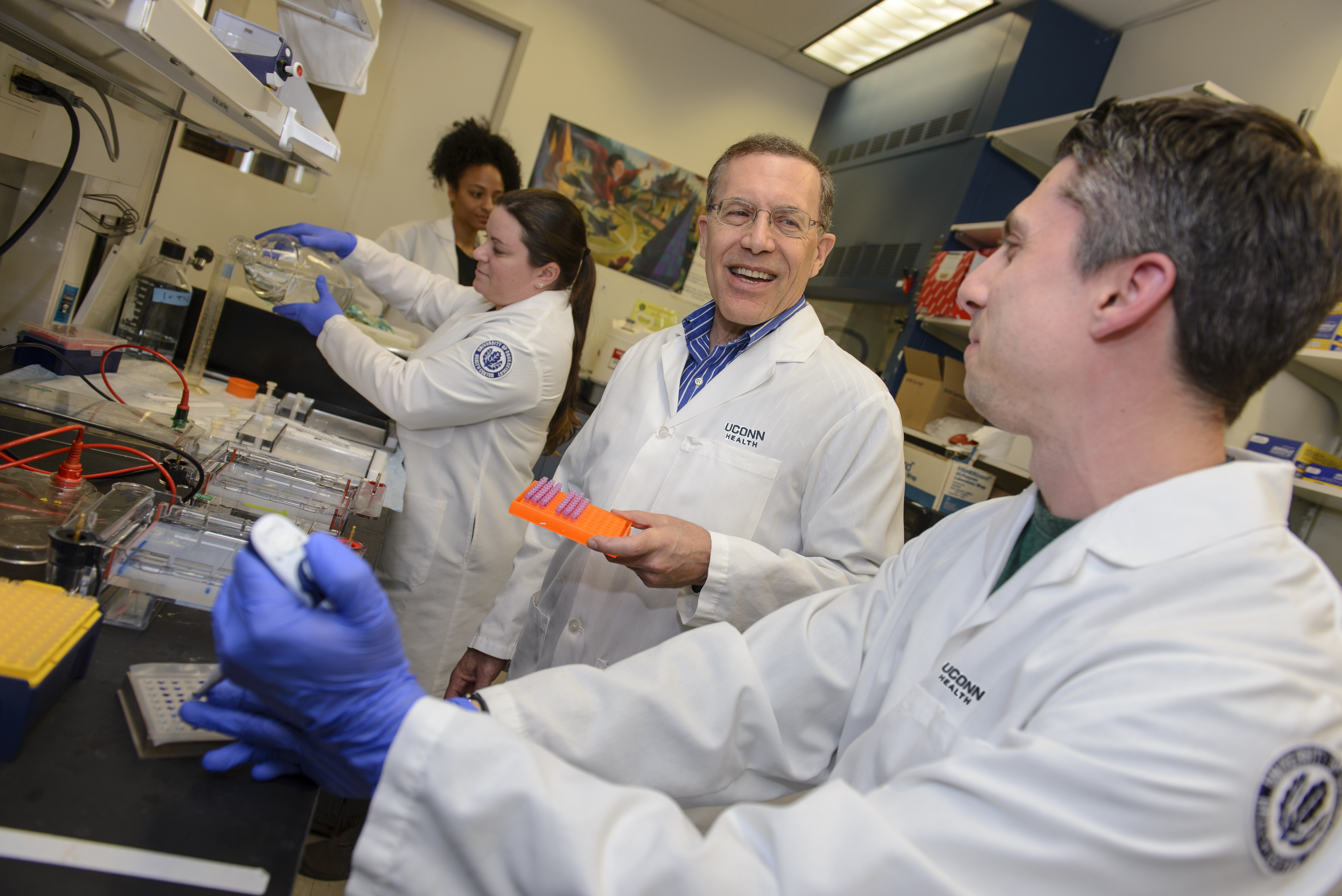An international team of scientists led by the Icahn School of Medicine at Mount Sinai and UConn School of Medicine sequenced a genome for an extremely rare form of cancer, demonstrating the utility of this approach to open the door for therapy options for rare diseases that are neglected due to scarcity of patients or lack of resources.
Their findings were published today by JCI Insight, a journal of the American Society for Clinical Investigation.
For this project, leading genomic scientists from Mount Sinai, UConn, and other collaborating institutions, performed exome sequencing on tumors and matched normal samples from 17 patients with parathyroid carcinoma, an ultra-rare form of cancer for which there is no effective treatment.
When a tumor forms on one of the four small parathyroid glands located behind the thyroid, it can impact the body’s control of calcium levels in both blood and bones. If it is not cured early by surgery, patients with this cancer typically die from its progressive metabolic complications including very high blood calcium levels, weakened bones, and calcium-induced kidney damage.
This study shows that parathyroid carcinoma may be rare but its genetic mutations are not. — Eric Schadt, senior author
Researchers found several mutations in known cancer-related genes and pathways, including the CDC73 tumor suppressor, the PI3K/AKT/mTOR pathway, and the Wnt canonical pathway, among others. This in-depth characterization provides a clear view of genetic mechanisms involved in parathyroid carcinoma and could lead to the first therapy options for patients.
“This is the largest genomic sequencing study to date for this rare and deadly cancer, and we believe it serves as important validation for using this approach to uncover clinically relevant information in any number of neglected diseases,” said Rong Chen, senior author of the paper and assistant professor in the Department of Genetics and Genomic Sciences at Mount Sinai. “Genomic analysis is opening the doors to diseases that could never have been understood through traditional biomedical research because there simply aren’t enough patients to observe.”
The genetic variants identified in this study have been detected in other cancers and are the subject of ongoing basket trials, or clinical trials focused on specific mutations rather than the tissue where the cancer formed.

The study combined the power of UConn’s world-renowned research expertise in parathyroid disease and other endocrine tumors with Mount Sinai’s leadership in next-generation genomic sequencing and bioinformatics analysis.
Mount Sinai’s work built upon research by Dr. Andrew Arnold of UConn, published in the New England Journal of Medicine in 2003. In the earlier study, Arnold reported on the first gene discovered in non-familial parathyroid cancer.
Arnold’s team has a longstanding history of investigating the molecular genetic underpinnings of endocrine gland tumors, having been the first to discover cyclin D1 (PRAD1), a key regulator in multiple cancers including breast cancer. That regulator is altered in parathyroid carcinoma as well.
“I have been involved in the care of patients with advanced parathyroid carcinoma for well over two decades, and the lack of effective anti-tumor therapy has been terribly frustrating,” says Arnold, the study’s co-leader, who serves as the Murray-Heilig Chair in Molecular Medicine, director of the Center for Molecular Medicine, and chief of endocrinology at UConn School of Medicine.
“Some of the tumor-specific genomic vulnerabilities we found turn out to be shared with much more common cancers, so drugs already being developed for other cancers may prove valuable in parathyroid cancer,” said Arnold. “This offers new hope for our patients, and serves as a model for approaching other rare and neglected diseases.”
The study was funded by the Icahn Institute of Genomics and Multiscale Biology at Mount Sinai and the Murray-Heilig Fund in Molecular Medicine at UConn School of Medicine through the UConn Foundation.
“As we generate and analyze large, multi-dimensional data sets from tumors, there is mounting evidence that cancer treatment may be more successful when based on specific genetic markers instead of tissue of origin,” said Eric Schadt, senior author on the paper, the Jean C. and James W. Crystal Professor of Genomics at the Icahn School of Medicine at Mount Sinai, and founding director of the Icahn Institute for Genomics and Multiscale Biology. “This study shows that parathyroid carcinoma may be rare but its genetic mutations are not, indicating that patients may benefit right now from treatments that are already on the market.”



